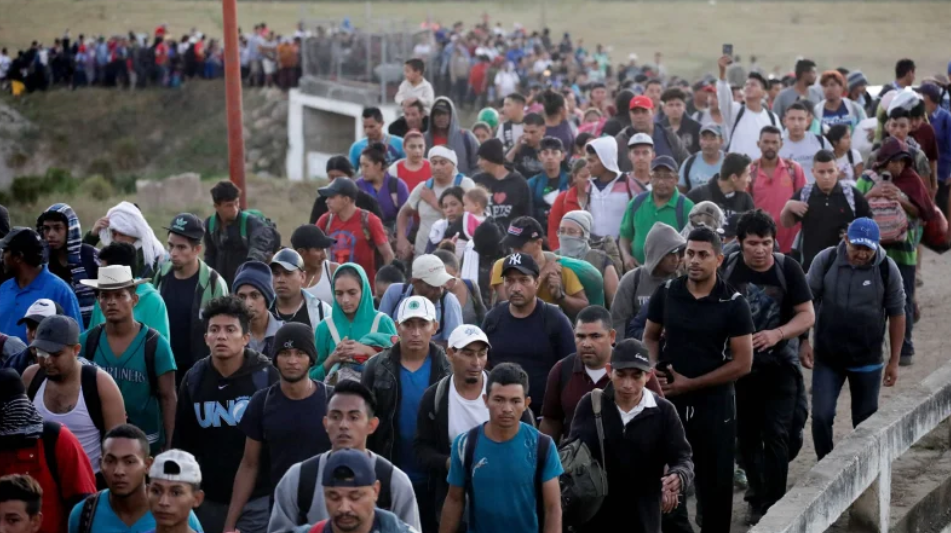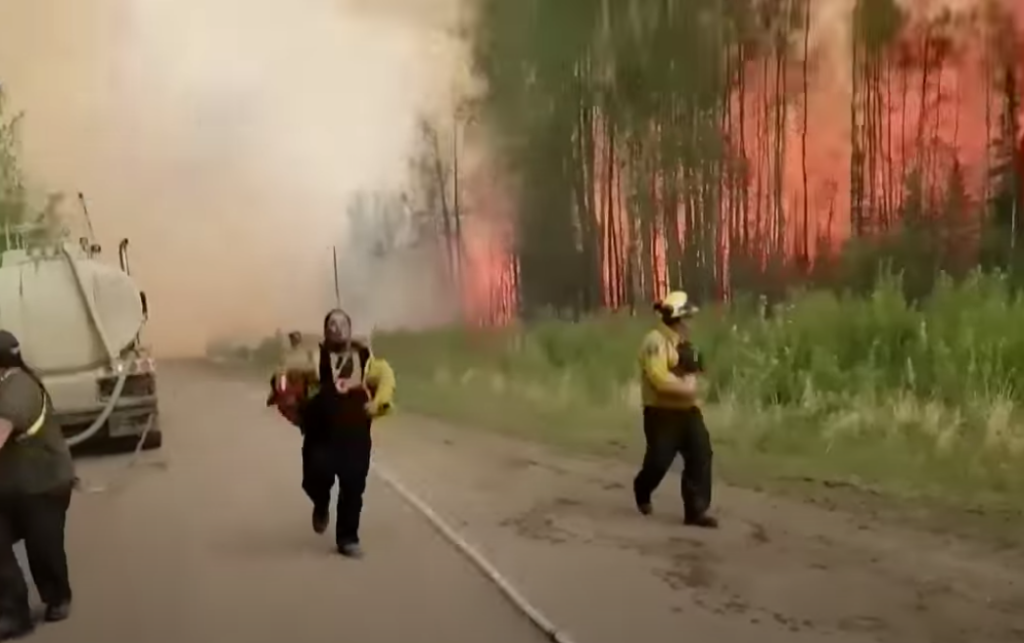Raúl Zibechi
We are accustomed to the defenders of state-centered politics publicizing the actions of states, emphasizing their achievements and omitting state criminality, which is usually attributed to drug trafficking groups and armed gangs that multiply thanks to the support they receive from official armed institutions.
However, very little mention is made of what these states are not doing, what they are unable or unwilling to do for the most diverse reasons. Attempts are made to hide the fact that violence, which continues to grow in most of our countries, from Mexico to Chile, would not happen without the complicity, silence or direct support of police and military, as well as businessmen and federal, state and municipal governments.
Let’s take a look at some examples.
What can states do in the face of the climate crisis and mass migration? The rulers say they are doing their best, they meet, they convene expensive international conferences and summits between leaders, but they remain empty declarations that no one trusts except those who benefit from these meetings.
But the question should go deeper: what could states and governments do if they were led by honest people? Or something more complex: is it possible to stop or reverse climate change? What about migration?

A study published by the journal Nature Sutainability says that 3 to 6 billion people, between one-third and one-half of humanity, could be trapped outside the environmental niche where life is possible, facing extreme heat, food shortages and higher mortality rates, unless emissions are drastically reduced or mass migration is taken into account (bit.ly/3CqyNPA).
To reverse the climate crisis, there would have to be a drastic change in two central issues: the accumulation of capital by dispossession or theft, and the lifestyles of the portion of humanity that lives quite well, i.e. the middle and upper classes of the world. Both are impossible. The first because it is a matter of the richest one percent who have shown that they do not want to leave their place of privilege.
The second because cultural changes are very slow and nobody wants to lose their standard of living, or of consumption. How many of the people reading these lines would be willing to live like the indigenous peoples of Chiapas who, just because they are poor, are being punished by the powerful?
It is not easy to change the way of life. It is even less easy to do it out of will and not out of necessity. If half of the planet’s population can migrate for climatic reasons, it is clear that this enormous and brutal percentage cannot be contained even by the most powerful state. The U.S. authorities are absolutely powerless to stop the clouds of smoke and dust caused these days by the forest fires in Canada.

These days I am in Venezuela, where there is no gasoline and the country is paralyzed. I come from Uruguay, where I reside and where there is no more drinking water. Venezuela has the largest oil reserves in the world and Uruguay used to be a paradise of abundant drinking water of very good quality.
In both cases we see the impotence of the states. The refineries in Venezuela are 60 to 70 years old, have not been repaired, and now have almost permanent failures. Venezuela now depends on gasoline shipments from Iran. The monoculture of hydrocarbons is at the core of this tremendous crisis.
In Uruguay, agricultural production for export is responsible for the current shortage, although it was aggravated by the long drought caused by climate change. Deforestation, soybean monocultures and dairy farming are at the root of the current water shortage, since the main watersheds are polluted and no one has responded, neither the current right-wing government nor the previous left-wing ones.
In both countries, accumulation by dispossession is ultimately responsible for the disasters. But the gravity of the situation affecting us can no longer be resolved either through demonstrations (in Montevideo there are daily demonstrations and they are necessary to alert the population in the face of official silence), or through changes of government. The force of inertia to which Fernand Braudel alluded is so important that not even the collapse of the current world-system is capable of making populations change their habits, particularly urban populations.
Seven years ago, at the meeting Critical Thinking in the Face of the Capitalist Hydra, held in San Cristóbal de las Casas, the EZLN warned about the scale of the migrations to be expected in this century. To some of us it seemed exaggerated, but reality is overwhelming us.
What are we going to do in the face of the evidence that we are facing risks that neither states nor governments can solve? It is clear that we must choose between autonomy and barbarism.
Original article published in La Jornada on Friday, June 16th. https://www.jornada.com.mx/2023/06/16/opinion/015a2pol
English translation by Schools for Chiapas.
